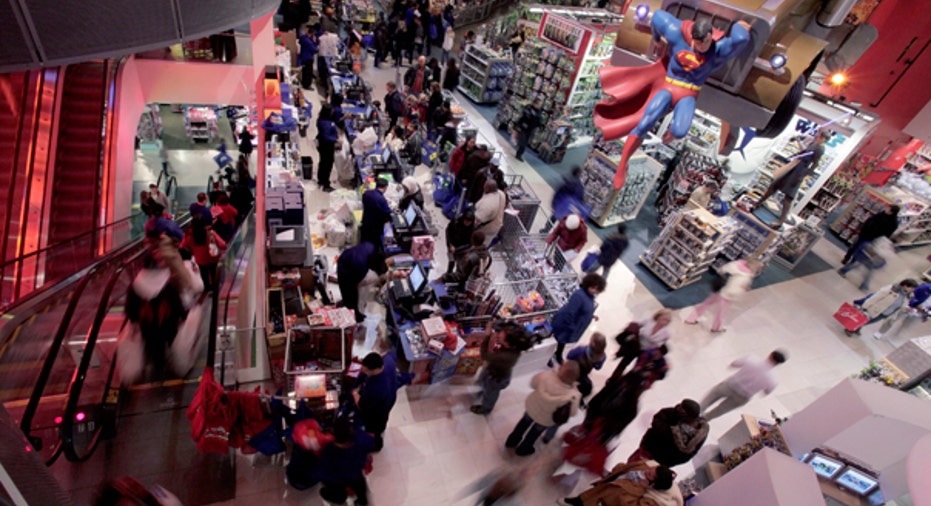8 Top Reasons You Overspend

It happens all the time: You go to the supermarket for a gallon of milk and come home with four bags of groceries, or you plan to order a single book from Amazon.com and end up with a $78 bill at checkout. You're not alone.
Read on to discover the top eight reasons you overspend.
1. Paying with plasticTakeout or dine in? Paper or plastic? Cash or credit? Of all the choices you make at the checkout counter, the decision to pay with a credit card has the biggest impact on your bottom line.
Multiple studies, including this 2008 study published in the Journal of Experimental Psychology, have found consumers are willing to spend more when they pay with a credit card instead of cash.
"Credit cards allow consumers to focus more on what they're getting, or buying, than what they're losing, or spending," explains Kit Yarrow, a professor of psychology and marketing at Golden Gate University. Credit cards "buffer the reality of spending because they leave more cash in our pockets and purses and provide a delay before payment is required."
2. Listening to musicListening to music is perfect for increasing motivation during a workout. It also increases the motivation to spend. You're more apt to give in to impulse purchases in shops where instrumental or classical music is playing, according to one study.
Experts believe that loud music also impacts spending.
"Louder music in restaurants pushes people to eat faster, order more and consume more food because they can't talk to each other over the noise," explains Paula C. Peter, assistant professor of marketing and consumer behavior at San Diego State University. "Being overwhelmed by music also interferes with our ability to think clearly, which can lead to spending more money."
3. Buying in bulkBefore you stock up on a 280-ounce bag of chocolate chips, consider this: You're more likely to overspend when you buy in bulk.
A case of paper towels might cost less per unit than a single roll, but it'll add a bigger lump sum to the total bill, which could lead to blowing the weekly grocery budget. There is another reason that buying in bulk adds up at the checkout counter.
"Having large quantities on hand actually increases consumption," Yarrow says.
The more you consume, the more you'll spend.
4. DietingIf you're watching your weight, you should be watching your wallet, too.
Dieting depletes what Kathleen Vohs, associate professor of marketing at the University of Minnesota, refers to as regulatory resources, which are a more sophisticated form of willpower.
"When regulatory resources are low, people feel stronger urges to buy impulsively, are willing to spend more money for a product, buy more items and spend more total money," notes Vohs. "Being on a diet is a big depletion endeavor." When those urges are present, "people are less able to restrain their impulses, so whatever they are tempted to do -- like spend on needless trinkets -- will emerge."
5. Tracking exact costsKeeping track of purchases right down to the last dollar will keep spending in check, right? Wrong. New research found that consumers who try the hardest to budget are the ones who end up overspending. In fact, shoppers who attempt to calculate the exact total price of their purchases spend an average of 19 percent more than consumers who estimate an approximate total price. According to the study, "shoppers consistently underestimate the total price of shopping baskets, which puts them at risk for spending more than they budgeted."
If calculating the exact total is important, consider shopping with a calculator.
6. Buying clearance merchandiseThere is nothing wrong with getting an item on sale. The problem with the clearance rack is the items are limited.
"It leads to the idea that if I don't get it now, it won't be there later," says Yarrow. "The fear of missing out tends to make us much less rational about evaluating our purchases, so we end up spending money on things we didn't want or need."
To avoid overspending on unnecessary sale items, Yarrow suggests applying the Boy Scout motto: Be prepared.
"Tell yourself that you're going in to buy a specific item and you won't get caught up in the frenzy of the crowd," she says.
7. Shopping without a listIt's one of the most oft-repeated mantras of maintaining a budget: Make a list and stick to it. You're more likely to buy only the things you need if they're written down in black and white.
"If you struggle with self-control, bring cash instead of a credit card," Peter advises.
You can't overspend if you're limited to the cash in your pocket.
8. Falling for clever pricing tacticsIn his book, "Priceless: The Myth of Fair Value and How to Take Advantage of It," author William Poundstone points out that marketers have a clever approach to making shoppers think they're getting a good deal.
"There are places where there's a $150 hamburger," he writes. "The first thing everyone does is shake their head. But then you go down the menu, suddenly the $50 steak doesn't seem so outrageous."
You've overspent while thinking you're getting a bargain.
More from CreditCards.com:



















